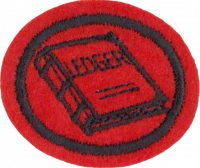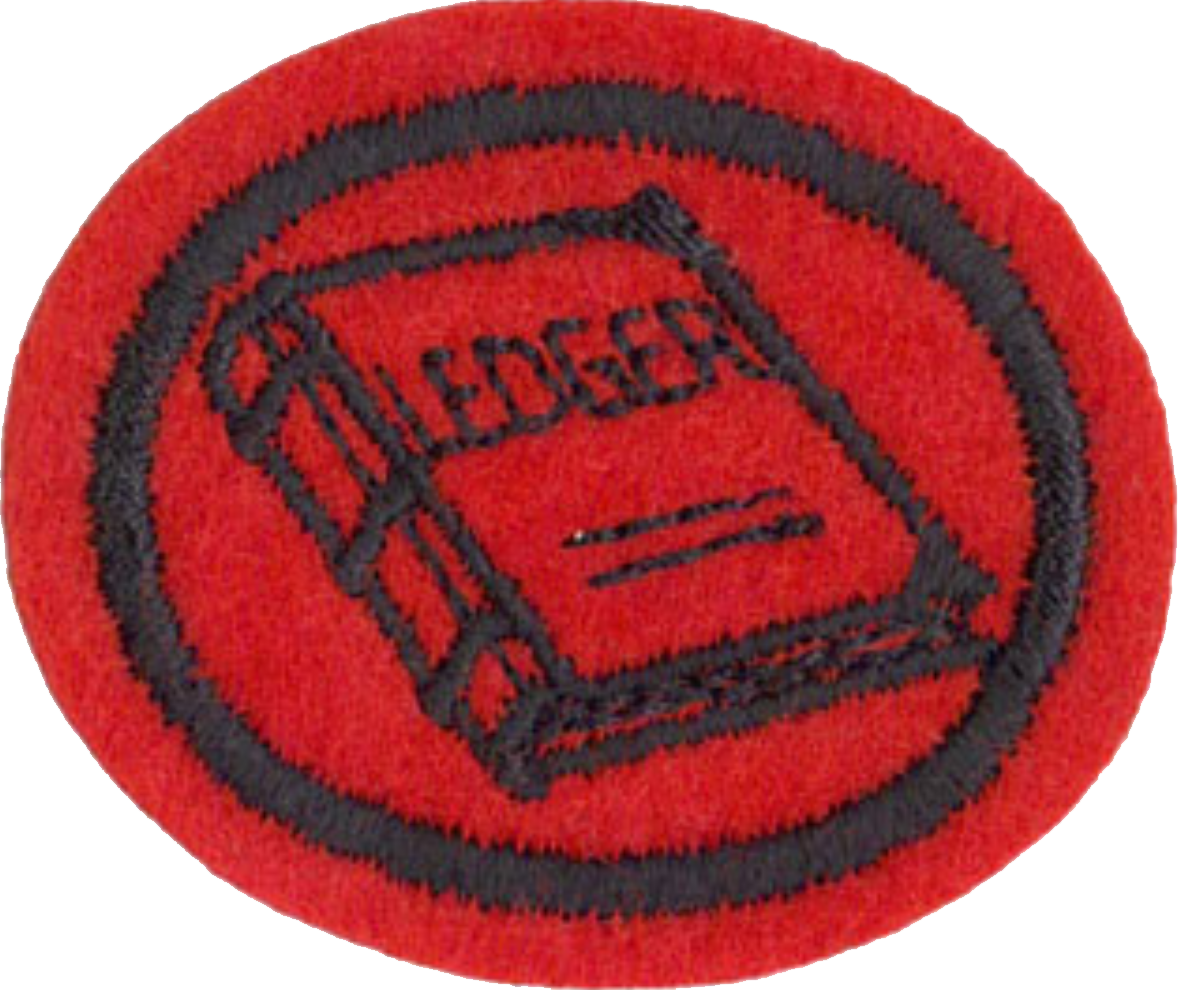Especialidades JA/Contabilidad I/Respuestas
Nivel de destreza
2
Año
1937
Version
15.01.2026
Autoridad de aprobación
Asociación General
1
2
2a
2b
2c
2d
A debit is an entry on the left side of an account. It represents an increase in an asset or expense and represents a decrease in a liability or owner's equity.
2e
Information about transactions is collected in journals. Typically a business will have a Cash Receipts Journal, a Cash Disbursements Journal, and a General Journal (where transactions affecting accounts other than cash are accumulated). Posting is the process of transferring the debits and credits recorded in the journals to individual accounts.
Example: At the end of the week the Cash Disbursements Journal is totaled. Checks totaling $3,694.32 were written that week. $2,075.00 of those checks were written to pay bills (Accounts Payable) and $1,000 was written in salary checks to employees. The remaining $619.32 was used to purchase office supplies. The bookkeeper would post a debit of $2,075.00 to Accounts Payable, a debit of $1,000 to Salary Expense, a debit of $619.32 to Office Supplies Expense, and a credit to Checking Account of $2,075.00.
2f
A trial balance is a listing of all the business's accounts with their balance at a specific date and time. It is used as a check to determine that both sides of each double-entry transaction have been posted. Asset and expense accounts (accounts that normally have a debit balance) are added together in one column. Liabilities, owner's equity, and income accounts (accounts that normally have a credit balance) are added together in another column. If the bookkeeper has added and subtracted properly, the two columns should have equal totals.
2g
2h
2i
3
4
One could become a bookkeeper having only taken a high school bookkeeping course, given the computer software currently available. This would be especially true of a bookkeeping position at a very small business. A two-year degree at a technical college would probably open up bookkeeping jobs at a somewhat larger company or as a paraprofessional at an accounting firm. Other courses that further one's understanding of business are helpful in advancing in one's career. These would include economics and marketing, which are part of the course work needed to earn one's Bachelor's degree in accounting.
5
A person who has enjoyed being a bookkeeper may well enjoy furthering their education and becoming an accountant. The job accountant can cover many different types of jobs including C.F.O. (Chief Financial Officer) of a company, a C.P.A. (Certified Public Accountant) auditing businesses' financial statements, a tax return preparer, or a financial advisor to wealthy individuals.
6
- a. ¿Cuánto tiempo pasa usted cada semana en su trabajo como tesorero de la iglesia?
- b. ¿Qué hace con el dinero recaudado en el plato de las ofrendas?
- c. ¿Cómo realiza el seguimiento de quién ha contribuido y con cuánto dinero?
- d. ¿Qué dinero es enviado a la asociación?
- e. ¿Qué dinero permanece en la iglesia local?
- f. ¿Son sus registros revisados por un contador? ¿Con qué frecuencia?
- g. ¿Cómo usted informa las finanzas de la iglesia a la junta directiva de la iglesia?
- h. ¿Cómo usted informa las finanzas de la iglesia a la asociación?
Make arrangements with your church treasurer well ahead of time so that she has plenty of time to work you into her schedule. Be flexible in scheduling your guest's time with your club. It may be necessary to have "honor time" earlier or later in the meeting to accommodate her schedule. Remember (and remind your Pathfinders) that she is doing you a favor by taking time out of her schedule to help you with this requirement. You may wish to provide the questions to her in advance so she doesn't have to come up with the answers on the spot. Write the questions down on index cards and pass them out to your Pathfinders so that they can take turns asking them.


